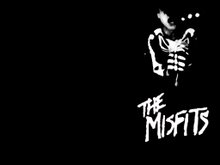Lost executive producers Damon Lindelof and Cartlon Cuse may be writing one of the most talked-about shows on television, but they also catch plenty of flak for dropped storylines, confusing characterizations and leading viewers on. In a recent interview in L.A., they took on the critics and were themselves critical of some of the imitators Lost has spawned.
“If you look around the landscape of the television season already in the United States, the majority of the complex serialized shows aren’t really catching fire,” says Carlton Cuse, not unkindly. “Heroes is the exception. But you know, Smith or The Nine, or Vanished, Kidnapped … there are a lot of shows that are sort of sprawling serialized, lots of characters, complex storytelling, and they haven’t worked. I think that Lost will spawn imitations until somebody comes up with the next great idea for a TV show. And then that will start to spawn imitations. I think it’s just the way network television works.”
For his partner, Damon Lindelof, part of what makes writing Lost so difficult is that it’s so successful, which means there’s no end in sight. “Basically, if you’re going to watch the show, you have to be OK with just going on the journey as opposed to working towards a specific end point. So when J.K. Rowling says there are seven Harry Potter books, you know that every time you pick up a Harry Potter book, that’s one closer to the last book. And that’s engaging.”
It’s a limiting factor that Lindelof admits prevents him from enjoying other shows. “In Prison Break, the show is about breaking out of prison. So they’re out now. Now the show is about they’re on the run. So, you know, are they going to get to Mexico? Is the show just going to be them perpetually on the run? I stopped watching because I knew that they could never get caught because that would end the show. So the fatigue of me as a viewer – I know this as a storyteller – I’m not going to keep watching, even though I’m invested in the characters, because I know, satisfyingly, it will never end.
“For me, The Nine is an excellent show, but when you watch the pilot, you go, ‘OK, at the end of the season I’ll know what happened during those 52 hours. Then what?’ And I’m not willing to make that deal to watch 24 hours of that show because my trust is – you know, is a very fickle thing because there are so many other things I could be watching.
“Unfortunately, The X-Files, which is one of my favourite shows ever and went nine seasons, which is a stratospheric success by any measure, it seems that now people talk about it like it’s a cautionary tale because it did not end on the terms that the audience wanted it to end. It went on, arguably, one, two, three seasons too long. And ultimately there’s a part of us, as storytellers, that realizes we’re resigned to the same fate because shows can only go on too long. They never end at the point where they were just supposed to end because you don’t know that you were supposed to end until you’ve been going on for too long,” says Lindelof glumly.
Another difficulty that seems unique to writing Lost is satisfying the impossibly high standard of the devoted fans. “It’s fantastic that everybody is so involved and engaged in the show. I think that the one fundamental error that people make is they try to reduce it down, like hunting physics for a unified field theory,” Cuse says. “It’s not that simple. The answers or the mysteries of the show can’t be summarized in one sentence.
